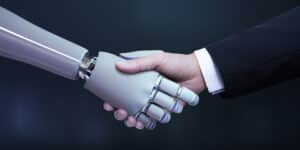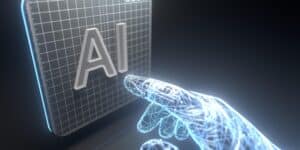Discover Lucrative Salaries for AI Professionals in the Entertainment Industry – Most In-Demand Roles Revealed!
Integrating AI into the Product Manager Role at Netflix
Amid a writers’ strike, Netflix is creating a new product manager position that involves the use of artificial intelligence (AI) in various aspects of its operations. This position aims to integrate AI into content acquisition and personalization of recommendations for users. The strike was called by artists and performers who are demanding higher remuneration from streaming platforms and stricter regulation of the use of AI in the writing process.
The challenges posed by AI for players in the sector
Duncan Crabtree-Ireland, national executive director and lead negotiator for actors union SAG-AFTRA, sees the rise of AI as a threat to actors’ livelihoods. The strikers are calling for regulations aimed at limiting the use of AI in content creation, considering it as a simple complementary tool rather than a total replacement for screenwriters.
A senior executive at HBO, Casey Bloys, also opposes the integration of AI into the development or creative process of series produced by the channel. However, experience in the field of AI has become highly sought after across different industries.
Attractive salaries for AI specialists
Many companies now offer six-figure base salaries for AI-related positions. A survey conducted by ResumeBuilder reveals that 91% of hiring business leaders are looking for candidates with ChatGPT experience:
- 25% of employers report that the starting salary for master content creator engineers exceeds $200,000;
- 17% say it exceeds $300,000.
Online training to meet demand
Stacie Haller, Career Manager at ResumeBuilder, mentions that many online tutorials are now available to help individuals develop their ChatGPT skills. These training courses allow those who wish to join this booming sector to acquire the necessary knowledge.
The debate around AI: threat or opportunity?
While some industry professionals see artificial intelligence as a potential threat to the work of actors and writers, it is clear that it also creates new opportunities for product managers and engineers specializing in this field.
It is therefore essential to establish adequate regulation that will allow optimal use of AI while preserving the creativity and work of artists. Current debates around this technology highlight the challenges the entertainment industry faces in the digital age.
The future
With the continued development of AI in the coming years, many questions will arise regarding its integration into traditional industries such as entertainment. In the short term, it will be crucial to find a balance between the use of artificial intelligence as an innovative tool and best practices to preserve the employment of writers and actors, which constitutes a major challenge for companies like Netflix or HBO.









